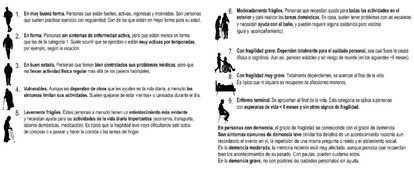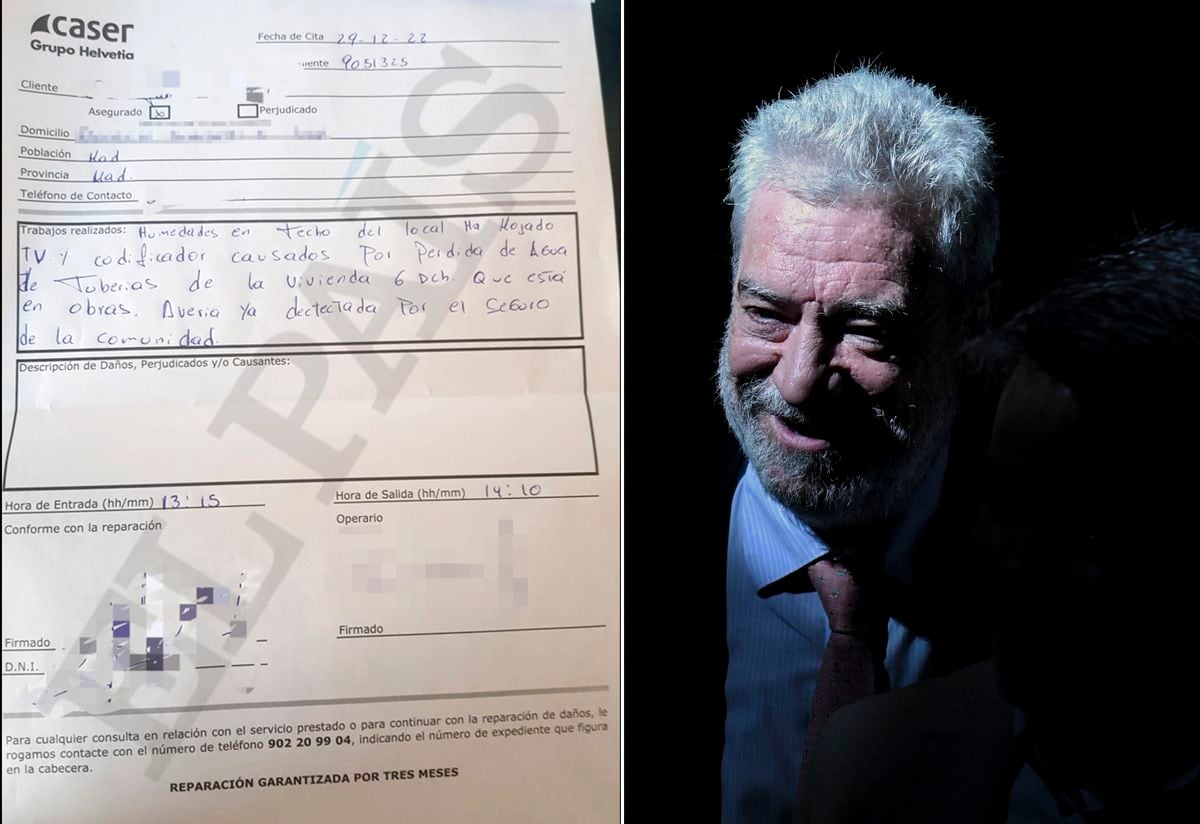Two and a half years later, the president of the Community of Madrid, Isabel Díaz Ayuso, has once again denied that her government drew up the protocols that prevented the hospitalization of thousands of elderly people who lived in residences in the region in the spring of 2020, during the first wave of the pandemic.
She this time she has done it in the Assembly during a response in the control session this Thursday to the leader of the opposition.
Mónica García (Más Madrid) told him that it had been 939 days since the regional Executive signed "the protocols of shame" that led to the death of 7,291 elderly people.
Ayuso replied: "I will not stop remembering every day of my life as long as I am president and I have you in front of you who lie shamelessly with a report that is not true and that was not applied in any way."
In that way,
The "protocols of shame" have become the most used expression to name the probably darkest episode of Ayuso's presidency, the thousands of deaths in unworthy circumstances in residences.
The issue had fallen into oblivion after the overwhelming electoral victory of the president in May 2021, when Vox seconded the PP's request to end the parliamentary investigation commission.
But this month the protocols have returned to the public agenda, after Vox resumed the proposal to examine what happened, an idea that coincided with the release of a book by the former Minister of Social Policies, Alberto Reyero (Ciudadanos), where He tells in detail what happened and dismantles falsehoods used by his then government colleagues.
In addition, last week another important twist was known,
More information
The left of Madrid is committed to ensuring that the death of the elderly in residences is not left uninvestigated
While the issue was hot in 2020, the Community of Madrid tried to evade responsibilities with the false argument that the protocols were drafts (Ayuso in May) or that they were sent by mistake (the Minister of Health, Enrique Ruiz Escudero, in June) .
It was part of a strategy of noise and confusion in which the then Vice President of the Government, Pablo Iglesias, was also accused of having assumed responsibility for residences throughout the country, another falsehood that is based on a press conference on 19 March in which Iglesias announced millionaire aid for the sector and the support of the military to fumigate centers.
But no, the competence of regulation and surveillance of the residences never ceased to be autonomous, being transferred.
The Community has also tried to downplay the seriousness of the tragedy,
by repeating over and over again that the same thing happened everywhere.
The reality is that, although hospitals in other regions of Europe such as Italy, the United Kingdom or Belgium rejected older people from residences, the case of Madrid stands out along with Catalonia for having put that rejection in writing, according to Amnesty International.
In the case of Madrid, the terms of the protocols were more severe and the hospital admission filtering system more elaborate.
The origin of the protocols is a panic situation.
As this newspaper has told, the leadership of the Ayuso Government tried to react in the week of Monday, March 9, 2020, to an imminent collapse of the hospital system due to the advance of covid-19.
The previous weekend there had been a high number of admissions to several hospitals, including Torrejón de Ardoz.
The president summoned the seat of her Government, the Royal Post Office, the doctor Antonio Burgueño to advise her on a response and he drew up a 270-point plan that has never been published.
On Thursday 12, Minister Escudero announced, among other measures, the medicalization of residences, that is, that the elderly in these centers were going to be treated in those centers thanks to a supposed health reinforcement.
He did not specify more about that plan,
Escudero avoided mentioning that a group of geriatricians was going to develop a protocol to restrict hospitalizations.
On Friday the 13th, ten geriatricians met with the general director of social and health coordination, Carlos Mur, in order to write down a new protocol for the hospitalization of nursing home patients.
The group was expanded to 22 geriatricians on March 16.
They worked on an
online
draft and produced four versions that were distributed and signed by Mur on March 18, 20, 24 and 25.
Until the pandemic, residences that needed to hospitalize a patient simply called the emergency number and waited for an ambulance.
With the system created by the protocols, the geriatricians were going to act as a filter, following rules that discouraged the hospitalization of people with dependencies according to an index known as Barthel, a scale that measures the autonomy of people from 0 to 100. In the latest version, the Barthel scale was replaced by a frailty scale from 1 to 9, accompanied by drawings, as seen in a document received by the liaison geriatricians and to which EL PAÍS had access.
Those who had a frailty of 7 or greater, that is, who were dependent for their personal care, were discarded.
The drawing that accompanies this level is that of an elderly person pushed in a wheelchair.
The fragility scale of the Community of Madrid protocol to deal with the coronavirus in nursing homes.
Click
here if you cannot read the document on these lines:
the March 25 triage protocol.
There is evidence that even before the first protocol of March 18, hospitalizations were being denied.
The best example is Monte Hermoso, the residence in the capital where the crisis broke out when it was learned on March 17 that a covid outbreak had caused the death of 19 people in the previous week without a transfer to the Clinical Hospital, on which they depended.
Lawyer Carlos Sardinero, from the Patient Defender Association, has defended the relatives of a patient who was denied transfer by the hospital as early as Sunday, March 8.
There is also evidence that at the moment of truth, when they received a call from the residence, the hospitals did not follow the protocols, but were even more strict.
This newspaper has recounted how in some cases an age criterion (75 years) was used and how in a residence in Alcorcón there was a total blockage of referrals for 27 days.
In another case, María Dolores Agenjo, 87, was rejected by the Rey Juan Carlos hospital despite being fully autonomous, according to her daughter's complaint.
The protocols were sent to nursing homes and hospitals, so it wasn't long before they were leaked to the press.
This happened for the first time on March 25, when
El Español
revealed the existence of one of the versions, the second.
A day later, EL PAÍS published the definitive version, in which people with disabilities are not excluded.
The alarm over the situation of the residences increased in the following days when the Ministry of Social Policies of Reyero published the mortality data that its officials compiled in daily communications with the residences.
At the end of spring, that count reached 5,954 deaths inside residences.
At the beginning of the crisis, some 50,000 elderly people lived in 474 residences in the region.
Later, the Ministry of Health gave a figure somewhat lower than 5,000 dead based on another counting method: death certificates.
But that system underestimated deaths, since many times these documents described as “cardiac arrest” what was actually a death caused by covid-19.
The figure of 7,921 dead to which Mónica García referred this Thursday comes from the newspaper
InfoLibre
,
which analyzed deaths from any cause in nursing homes in Madrid in the months of March and April.
It was in those months when the protocols caused the greatest damage.
This medium published data on referrals to hospitals from the Ministry of Health that show that exclusions were more intense between March 9 and April 5.
And with special intensity between March 16 and 29.
As hospitals freed up beds, geriatricians stopped filtering and sick residents were readmitted, though that situation varied from hospital to hospital.
According to an analysis published by EL PAÍS, in the entire first wave (from March to June 2020) 11,389 elderly people living in residences died, of which 8,338 (73%) were not transferred to a hospital.
Subscribe here
to our daily newsletter about Madrid.
Subscribe to continue reading
read without limits
Keep reading
I'm already a subscriber


/cloudfront-eu-central-1.images.arcpublishing.com/prisa/RUNTVUOYUJENUN2EWKUKWGRZPI.jpg)
/cloudfront-eu-central-1.images.arcpublishing.com/prisa/ZUKHJYNBKFGELIR5I5JL4S2JY4.jpg)

/cloudfront-eu-central-1.images.arcpublishing.com/prisa/QBO67JF5HVAEFIWVE6YMOGZZ74.jpg)

/cloudfront-eu-central-1.images.arcpublishing.com/prisa/CNZBUWS7XNGDJGRQV4JBJXJU2Q.jpg)
/cloudfront-eu-central-1.images.arcpublishing.com/prisa/4QR5EX6NGNB6FJCZO6PKJWIGFU.jpg)